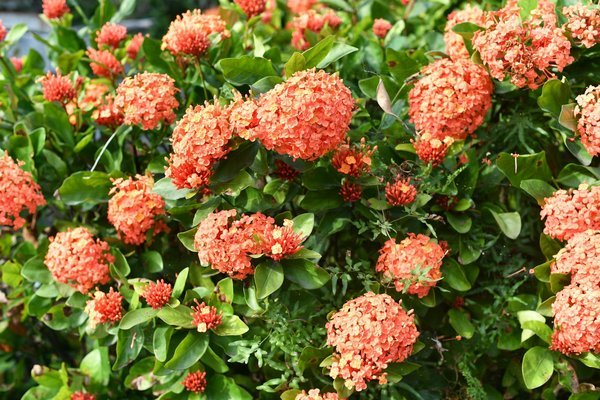
Transform your living space into something amazing
Discover expert guides, inspiring ideas, and practical insights for every aspect of your home. From interior design to garden makeovers, relocation tips to real estate trends, we cover everything that makes a house feel like home.
Explore our content universe
Browse through carefully curated categories covering all aspects of home living
Everything you need to know about home living
Amazing Movers brings you comprehensive guides and fresh perspectives on creating, maintaining, and enjoying your ideal living environment. Whether you're planning a move, renovating your space, or simply looking for inspiration, our content library has you covered.
- Weekly articles from experienced home and lifestyle writers
- Step-by-step guides for renovation and decoration projects
- Latest trends in real estate and property management
- Seasonal tips for garden maintenance and outdoor spaces

Latest articles
Our recent publications

Thriving in the UK's Driest Regions: Essential Tips for Successful Water-Wise Gardening
Gardening in dry regions presents unique challenges. In the UK's driest areas, drought conditions ar...

Transform Your UK Garden with a Year-Round Perennial Flower Border: The Ultimate Guide to Continuous Blooms
Perennial flower borders are a delightful aspect of any garden, offering a continuous display of blo...

Essential Humidity Management Tips to Protect Your Musical Instruments in UK Homes
Keeping musical instruments in top condition requires vigilance over environmental factors, most not...

Selecting the Best Energy-Saving Windows for Your Victorian UK Home: The Ultimate Guide
Energy-efficient windows are pivotal in reducing energy consumption in homes, and they play a signif...

Maximizing Home Efficiency: Expert Tips for Harmonizing Solar Panels and Battery Storage in the UK
Solar energy has emerged as a powerful means to reduce carbon footprints while achieving cost saving...

Revamp your uk utility room: the ultimate guide to designing a chic and functional space
The utility room plays a crucial role in modern UK homes, serving as a multifunctional space that ca...

Revamp your uk kitchen: inspiring renovation concepts with upcycled materials
Upcycling kitchen projects are increasingly popular as more homeowners embrace sustainable renovatio...

Reimagine Your UK Conservatory: A Step-by-Step Guide to Year-Round Vegetable Gardening
Engaging in conservatory gardening offers the remarkable benefit of year-round gardening, allowing y...

Crafting elegance: handcrafted ceramic pendant lights
Handcrafted ceramic pendant lights combine timeless artistry with modern design, transforming any sp...

Explore the beauty of 19th-century antique french clocks
Nineteenth-century French clocks blend masterful craftsmanship with rich historical styles, from ele...

Discover stylish jewelry boxes with locks for ultimate security
Protect your treasured jewelry with a stylish box that combines elegance and reliable locking securi...

Explore chic locked jewelry boxes for enhanced protection
Protecting treasured jewelry calls for more than simple storage. Chic locked jewelry boxes offer a s...

Stay stylish and fresh with the best lunch box hot box
Keeping your meals warm and fresh on the go has never been easier or more stylish. The best lunch bo...

Camo netting: versatile solutions for concealment and protection
Whether in dense forests or arid deserts, camo netting has long served as an indispensable resource ...

Mastering Perennial Vegetables: Expert Tips for Flourishing Gardens in the UK
Perennial vegetables are a game-changer for those interested in sustainable gardening. These plants,...

Explore Eco-Friendly Plaster Solutions for Your UK Home Makeover
Choosing eco-friendly plaster is crucial in modern home renovation due to its sustainability and min...

Revamp Your UK Garage: DIY Home Workshop Creation Guide for Ultimate Craftsmanship
Before embarking on the transformation of a garage into a functional workshop, it's crucial to focus...

Sustainable Garage Overhaul: Cutting-Edge Eco Design Ideas for UK Homeowners
Incorporating sustainable materials into garage renovations offers a number of benefits, both enviro...

Mastering the Art of Home Relocation: Proven Strategies for Safely Moving Your Precious Collection
It's essential to use effective packing techniques when dealing with valuable items. The choice of p...

Ultimate Guide to Safeguarding Your Valuables: Top Anti-Theft Strategies for House Moves in UK Cities
When moving homes in urban areas, especially in major UK cities, there are several risks of theft th...

Ultimate Guide to Safely Relocating Your Antique Furniture Across the UK: Expert Tips for Secure Moves
Antique furniture holds a unique allure, characterised by its age, historical significance, and arti...

Maximize Your Savings: The Ultimate 2023 Guide for UK Residents to Claim Remote Work Expense Tax Relief
Navigating the landscape of remote work tax relief in the UK can dramatically impact your financial ...

The Ultimate 2023 Food Hygiene Standards for UK Eateries: Essential Insights and Updates
Food hygiene standards in the UK have a deep-rooted historical evolution that spans decades, shaping...

The Ultimate 2023 Guide to Securing UK Grants for Rainwater Harvesting Systems: Your Complete Blueprint
UK grants for rainwater harvesting systems are pivotal in promoting sustainable environmental practi...

Elevate Your Manchester Attic: The Ultimate Home Office Transformation Guide
Transforming an attic into a usable space, like a home office, involves several crucial steps, espec...

Evaluating the Durability of Retaining Walls on Edinburgh Hillsides: An In-Depth Handbook
Retaining walls are essential structures, especially significant for ensuring hillside stability. Th...

Top Tips for Choosing Energy-Efficient Lighting for a Cozy Cornwall Home
Lighting plays a vital role in transforming your home into an inviting sanctuary, and opting for ene...

Transform Your UK Outdoor Haven: Captivating Pool Designs Featuring Stunning Waterfall Elements
Integrating pool designs with waterfall features transforms an ordinary backyard into a stunning out...

Transform Your UK Pool with Water Features: An Expert's Practical Guide
Enhancing a pool with water features can transform it from simple to spectacular. UK homeowners ofte...

Ultimate Guide to Mastering Your Pool Renovation Planning in the UK
Embarking on a pool renovation project is a significant undertaking that involves more than just enh...